The future of Oil-Spill Cleanup could be Oil-absorbing Cellulose
Oil Spill has been a problematic occurrence in the field of Oil exploration. Despite the various HSE policies and procedures adopted by the various Oil Exploration companies, incidents involving oil-spills still tend to occur.
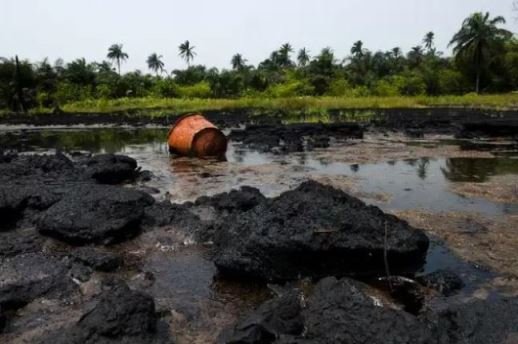
When it comes to incidents involving oil exploration especially in the deep sea, there can be no worse accident than Oil-Spills which pollute and harm not just the environment, but ruin the surrounding ecosystem, and destroy aquatic lives and livelihood in the process. In simple terms; oil-spillage always has devastating effects of extreme proportions.
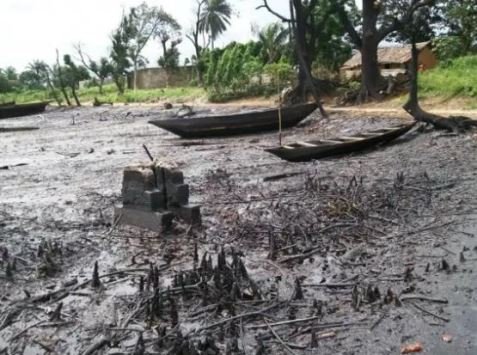
A well-publicized case is the oil spill incident of April 2010 in the Gulf of Mexico where thousands of barrels of oil spilled into the coastal waters daily, causing severe pollution and devastating destruction of aquatic life in the Gulf of Mexico.
Despite immediate attempts to seal and close the leakage source - which at a point involved the use of a remote propelled robotic mechanism – the pipe was eventually closed 87 days after the initial spillage began on a daily basis.
Bringing the critical case of oil-spill closer to home in the West African nation of Nigeria, would be the massive oil-spill incident in the oil-rich, southern region of Ogoni, in Rivers State, Nigeria.
The sad incident is considered to be one of the most devastating oil spills in the world.
The damage from the oil-spill in Ogoni in 2008 and 2009 did no small damage to the marine ecosystem and community, known primarily for fishing.
The effects of oil-spill cannot be over emphasized.
But thank to science and technological advancement, a scientists have created a potentially value tool that would aid the recovery of oil spill, by removing the oil from water in a solid phase.
A gel forming cellulose matrix for trapping oil spill
In a scientific breakthrough, which portends well for oil-spill recovery procedure, it was reported that Indian scientists developed a means whereby congelation of the oil spill into a rigid gel within impregnated cellulose can now be effectively carried out.
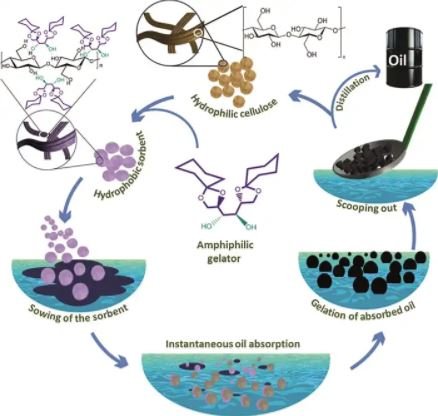
This means that the new tool would allow oil spill to be removed from water in the form of a solid. The technology as design by the scientists, absorbs the oil into a cellulose matrix and the converts the oil into a solid gel
Cellulose: The environmentally friendly and cheap carrier matrix
In order to create an effective oil-absorbing material to tackle oil-spill cleanup, Kana M. Suresan and Annamalai Prathap from the Indian Institute of Science, Education and Research (IISER) Thiruvananthapuram in Kerala, India, came up with an intriguing strategy.
Cellulose was chosen by the scientists since it serves as an environmentally friendly porous carrier matrix, and relatively cheap as well. The cellulose is then fed with an oleogelator created from a cheap mannitol-based organic compound.
By combining the process of absorption and gelation, the finished product is simply added to oil spills and they tightly bound the oil to a porous matrix and then the solid particles can be simply scooped out of the water.
And even as the solid particles were filled with oil, they did not sink in, but remained at the surface. That was possible due to the gelation process. The process of gelation occurs because the molecules of the gelator get dissolved in the oily phase, forming a three-dimensional network via hydrogen bonding. With the oil getting trapped in the fibre network, it forms a rigid gel which is then scooped out.
A plus for this mechanism of cellulose impregnation is the oleogelator which goes on to render the cellulose matrix hydrophobic – repelling water but absorbing oil.
Conclusion
In every engineering and scientific sense, oil spill is something that cannot be completely avoided as long as we continue to explore crude oil and also transport oil through the marine environment.
But if we can have at our disposal, a tool or technological and scientific mechanism which can convert liquid oil spill into a solid phase for ease of scooping out; then I suppose such a breakthrough should be globally embraced by oil exploration companies, in order to rapidly and easily deal with oil spills, especially in marine ecosystem.
Reference:
- http://dx.doi.org/10.1002/anie.201704699
- https://www.sciencedaily.com/releases/2017/07/170707095359.htm
- https://www.aiche.org/chenected/2017/07/oil-absorbing-cellulose-developed-oil-spill-cleanup
- http://onlinelibrary.wiley.com/doi/10.1002/ange.201704699/full
- http://www.reportingoilandgas.org/ogoniland-oil-spills-shell-admits-nigeria-liability/
Thank you for your time and for reading my post.
If you found this post interesting, then kindly UPVOTE, RESTEEM and FOLLOW @rickie, for more quality posts.
You Can Check Out My Other Posts Below:
- Can We Afford To Lose Bats, Given Their Importance?
- New Blood Test Can Predict Early Signs of Alzheimer's Disease
- What is Deep Brain Stimulation (DBS) and How does it Work?
- Tree-Planting Drones – A Booming Business to Restore and Revive Earth
- Cranberry and Avocado Seed Husks Are Medically More Potent Than Previously Thought
- Apart From Humans, Pollution Affects Plants Extremely Too

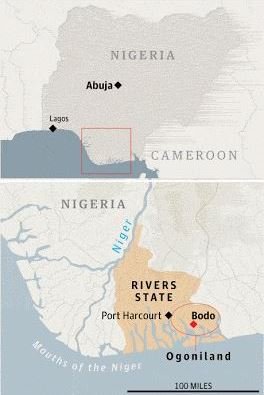
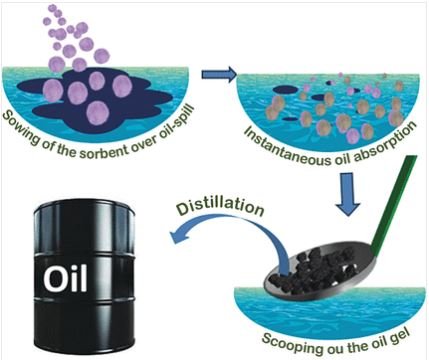
Good post. It's really shocking to see so much oil being spilled.will upvote
Yes @mrgranville, the level of devastation in the region was utterly disturbing. Couldn't sharing all the images to avoid elongation of the post, but the Ogoni region till date, is suffering the aftermath of the pollution in their environment. It's a good thing that the government are intensifying efforts to begin cleanup. We can only hope the process would commence soonest and would be thorough too.
Thanks for reading @mrgranville.
Good to see the technology is out there including this one, I know of a company in Canada working to bring to market a eco-friendly solution to cleaning up hydrocarbon spills... quite interesting to see its available, but the gov'ts and regulatory agencies are too slow to approve and use it.
You are right @vinmaru. Much of the problems facing the cleanup of oil spills is due to the delay in implementation and sometimes the logistics from the contractors that are to handle the project. I'm glad more companies are putting effort to adopt eco-friendly means and methods of cleaning up the environment. That would really help in a faster recovery of the ecosystem. Thanks for reading @vinmaru
Interesting article,
I'm working with cellulose, and yes the pores present in it have lots of space to carry things. But the amount of oil that usually spills into the oceans, don't you thing something else cheaper can be used. Because for such high amount of oil a large quantity of cellulose has to be used.
Thanks for visiting @vinamra. I'm glad to know you are experienced in the working and mechanism of cellulose. As for your question; "don't you thing something else cheaper can be used"?
Plus, I also think the composition of the oil and the desire to quickly absorb it, makes any other considered item like sponges, skimmers, booms, etc, more difficult to use, in achieving the desired result. Thanks for reading and sharing your take @vinamra
😊
I've followed your blog a long time ago. Nice share
Thank you @htuan. I'm equally doing same now.
a great post. one of the many problems we have to tackle in our country. thanks for creating awareness.
Excellent